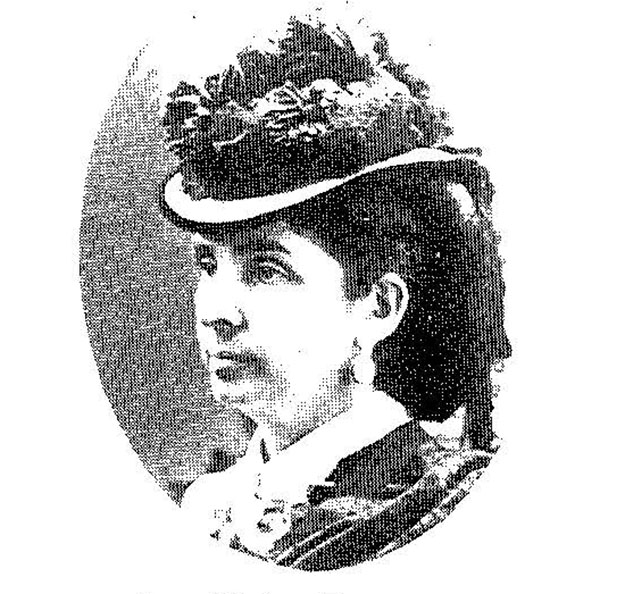Susan Moulton McMaster nominated as ‘Person of Impact’

Susan Moulton (Fraser) McMaster has been nominated as one of the University's 125 People of Impact. Voting is now underway to narrow down the greatest and most influential figures in our rich history.
For more than five decades, it’s served as a clean and comfortable home for McMaster students. Tucked away beside Wallingford Hall on the west side of campus, Moulton Hall was one of the first new residences built for the undergraduate boom of the 1950s and 60s.
But what can we make of the name, “Moulton?” Who did it belong to? And more importantly, why has that person been nominated as one of McMaster’s 125 People of Impact for the era of 1887-1929?
Over the next several weeks, the McMaster Alumni Association will collecting votes to determine the greatest and most profound figures in University history. Voting is open to the University community, and can be done online. Susan Moulton McMaster – the namesake of the campus residence – is one of the most colourful and influential figures in this week’s round.
Back in 1867, William McMaster was one of the top financiers and political influencers in the country, serving as President of the Canadian Bank of Commerce while also holding a seat in the inaugural Senate of Canada. But for all of his successes north of the border, it was a prim, pious and well-educated woman from New England who captured his heart and helped shape his vision for the future.
During a trip to New York City to liaise with a group of colleagues and friends, McMaster first met Susan – a devout Connecticut Baptist born in 1819 with a similar passion for both religious teachings and higher education.
According to University historian and professor emeritus Charles Johnston, McMaster realized upon the pair’s first meeting he had found the, “perfect person to share his life and interests in Toronto.” The two were married soon afterward, and relocated to the Senator’s Toronto home in 1871.
It was during this time that Moulton’s influence began to grow. As an earnest Baptist, she encouraged her husband to explore the unification of religion and higher education within her newfound community. McMaster funded a large portion of the Jarvis Street Baptist Church rebuilding in 1875, and founded the Toronto Baptist College on Bloor Street in 1881, not far from Queen’s Park. The latter would eventually become known as “McMaster Hall” (the genesis of our modern-day institution), and is currently home to the Royal Conservatory of Music.
When Moulton’s husband and spiritual companion of 16 years died in 1887, she continued to promote the teachings of the Baptist church, but also put new emphasis on educating the nation’s young women.
One year after the Senator’s death, Moulton met with the Board of Governors of the new “McMaster University,” and Moulton Ladies’ College was established as an arms-length academic department of the University in 1888. According to Johnston, she visited the College often (located in one of the couple’s former homes on Bloor Street), and offered academic and personal advice to young girls in the midst of a new and daunting scholastic environment.
The Bible was a central text in the classroom, but Moulton College endeavoured to offer a “well-rounded and practical curriculum,” writes Johnston. A notice in the Daily Mail and Empire from 1895 describes Moulton College as offering, “matriculation, collegiate, music and art courses” to its female student body.
Moulton died at her home in Montreal in 1916, but her lasting legacy and influence in promoting higher education can be felt to this day. A plaque at the corner of Bloor Street West and Yonge Street in Toronto pays homage to Moulton and her early educational accomplishments.
“For 66 years, Moulton College served with distinction both day and resident students from junior grades to university entrance,” reads a portion of the text. “The name is preserved as Moulton Hall, a women’s residence at McMaster University, Hamilton.”
Other nominees in this round include Senator William McMaster, Robert Alexander Fyfe, Oates C.S. Wallace, Alexander Charles McKay, Howard Primrose Whidden, Cyrus Stephen Eaton, Thomas Baker McQuesten, W.J. Westaway and John MacNeill.
Voting will conclude on Nov. 30, with new nominees each week.
With files from Charles M. Johnston, “McMaster University, Vol. 1: The Toronto Years” (Toronto: University of Toronto Press)

